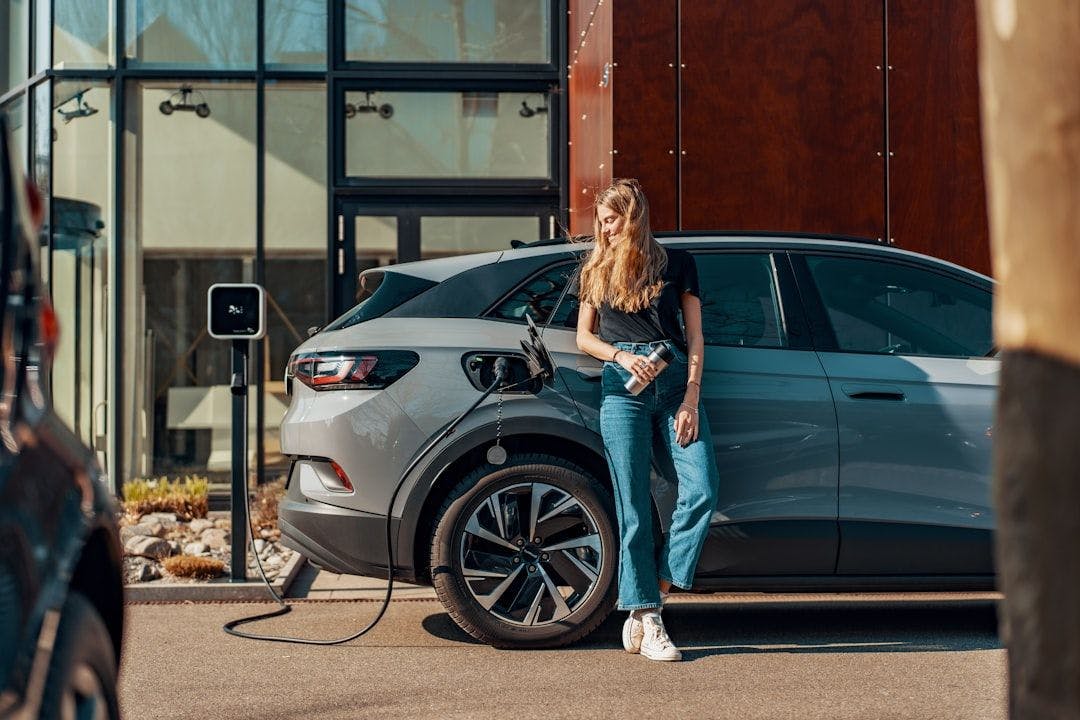The days of waiting 30 minutes or more at fast-charging stations for your electric vehicle (EV) to charge may well be over. Imagine plugging in your EV at a charging station and driving off in less than a minute, or charging at home in under five minutes. This is not science fiction; it is the tantalizing promise of quantum charging technology rooted in the weird and wonderful world of quantum physics.
Among the many issues with EVs today, one of the crucial bottlenecks preventing more consumers from purchasing EVs is the problematic issue surrounding the amount of time it takes to charge. Currently, fast charging stations require approximately 30 minutes – and that’s if there is no line. Charging at home is far slower, usually requiring several hours or overnight.
But scientists believe they may have reached a breakthrough, potentially supercharging EV adoption and reshaping our energy future. Quantum charging will completely transform the way we power batteries. Traditional EV batteries, like the lithium-ion packs in today’s EVs, charge their cells in parallel—each one independently soaking up energy like sponges in a bucket. This process is efficient but slow, limited by heat buildup, material constraints, and the sheer physics of moving electrons one by one.
Quantum batteries, however, leverage quantum mechanics, specifically phenomena like entanglement and superposition, to charge all cells “collectively” as a unified system. For a typical EV battery with hundreds of cells, this will slash charging times dramatically.
Of course, this technology doesn’t eliminate "range anxiety," that nagging fear of running out of battery on a long drive, but it helps to know that recharging is as quick and convenient as pumping gas.
Adding to the excitement, it is possible that quantum batteries will also be able to boost energy density, meaning more miles per charge without bulking up the battery pack. They might even extend battery life by reducing wear from repeated fast-charging cycles, addressing yet another key pain point for EV owners and potential buyers.
Quantum charging isn't a far-off fantasy; it is actively evolving. The concept of quantum batteries was first theorized in 2012 by physicists Alicki and Fannes, who proposed using quantum entanglement to accelerate energy storage. Fast-forward to today, and labs worldwide are turning theory into prototypes. Early this year, market projections estimated the global quantum batteries sector at $14.28 billion, with growth expected to reach $52.10 billion by 2032, signaling real commercial momentum.
If quantum charging becomes attainable, and the rapid progress we are seeing suggests it could be within the decade, the ripple effects would be monumental.
EV adoption by consumers will skyrocket as people see more benefits than worries. EVs would likely outsell gas cars within a short period, and global emissions would drop drastically. Public transit vehicles, a major greenhouse gas polluter, would be able to go green even faster, cutting down emissions even further. Long-haul trucking will change dramatically, with cleaner vehicles, extended driving range, and shorter pit stops as refueling is required.
Of course, quantum charging can be applied in other areas as well. This advanced technology could turbocharge everything else from smartphones (goodbye annoying cables) to drones and wearable technology.
Naturally, as with any new technology, there are issues that need to be solved. Quantum systems are complicated, requiring low temperatures and precise conditions. Scalability and affordable mass production remain an issue that needs resolving, but the excitement is still there as more research shows further promise.
And the enthusiasm has caught on. Investors are pouring billions into quantum R&D, and many events on the topic focus on sustainability and the potential of quantum technology. If we manage to harness it, it will make clean energy accessible and affordable worldwide.
We are closer than ever to this major technological breakthrough – perhaps the largest since the advent of the internet. The future is charging ahead at quantum speed, and hopefully, we can soon bid farewell to mankind’s reliance on fossil fuels.


